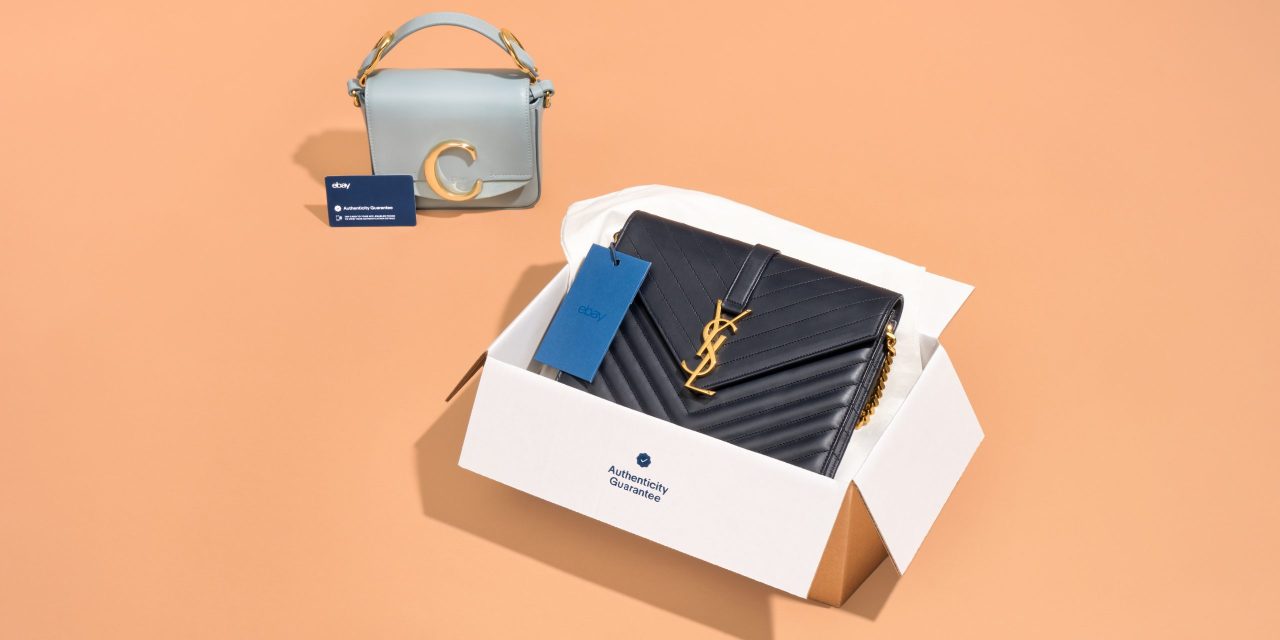‘Sellers have a much bigger reach’: How eBay plans to stand out in luxury resale

EBay is focusing on luxury resellers and buyers with new authentication services and a product storage vault.
In eBay’s fourth-quarter 2021 earning report in February, the company announced double-digit U.S. sales growth in luxury handbags and watches. While eBay’s total revenue was up 5% to $2.6 billion in the quarter, the platforms focus on categories like sneakers and luxury watches drove outsized growth. However, annual active buyers were down 9% to 147 million, while sellers were down 8% to 17 million.
In part, eBay has been courting luxury consumers by expanding its authentication process — in which third-party sellers send products to an authentication middleman, versus directly to buyers. Over the course of the past year and a half, eBay has expanded this service to new regions like the U.K. and Germany, and new categories like handbags. The company first launched the Authentication Guarantee service in 2020, for watches worth $2,000 or more.
Moreover, in an Investors Day presentation in early March, eBay announced the addition of eBay Vault, a 31,000-square-foot facility and digital marketplace that people can sell or buy authenticated product from. The Vault taps into investment more than consumption; purchased items are kept in the facility (for quicker resale later on) rather than sent to customers. The model is similar to StockX’s new “Vault NFT” program, where NFT collectibles are tied to physical sneakers, stored in a vault. While eBay is first using the facility for trading cards and collectibles, executives announced intentions to expand the Vault service to luxury items as well.
Modern Retail spoke with eBay’s GM of luxury, Tirath Kamdar about expanding into authentication, the launch of eBay Vault and how eBay is competing with luxury resale peers like The RealReal. This interview has been edited for length and clarity.
What do you think the luxury eBay customer is looking for, is it similar or different from an eBay customer in other categories?
They’re coming to eBay knowing that they’re going to be able to find the most rare, coveted, hard-to-find items. In luxury, popularity of pre-owned items has been taking off. McKinsey recently wrote that a third of the luxury market in 2025 will be made up of resale. And eBay is really centered around a resale marketplace of secondhand luxury.
Right now some of these products are also just very hard to find. You can’t just walk into retail stores anymore and expect to find a brand-new Rolex Submariner. And as a result, prices have actually been increasing… they’re able to find that unique rare piece [at eBay] that they just couldn’t find anywhere else, because of the scarcity issue.
Ad position: web_incontent_pos1
Can you tell me a bit more about your Authentic Guarantee program in which sellers send luxury items to an authenticator, rather than directly to the buyer?
For the first time ever, eBay is actually physically taking products after the sale of an item before it reaches the buyer. EBay really hasn’t done that historically. I believe strongly that in the mid- to high-ASP [average selling price] categories, it is really important to make sure that you’re going to get exactly what you ordered.
Is the condition the same as it was listed? If the listing said “original Rolex box and Rolex warranty papers,” is it actually going to come with it? When you spend $5,000 [or] $10,000 on any of these luxury items in any of these categories, you don’t want to deal with getting something and then being faced with trying to get your money back or returning an item, when somebody could have already checked that for you before you received it.
We’ve been able to design processes and systems to scale and process millions of items already through our Authenticity Guarantee. We’re partnering with category experts… to ensure that when the item is being verified, you have a person that knows what they’re doing. eBay — through this program — is now standing behind everything. If something doesn’t pass our Authenticity Guarantee, that buyer is issued a refund.
Can you give some details about the launch of eBay Vault? While it’s starting with trading cards and collectibles, executives mentioned plans to also use the space for luxury goods?
We’re investing into a 31,000-square-foot, secure storage facility. The digitization of goods is taking off as you’ve seen with NFT market. There’s a lot of people that want to now invest into these goods [saying], “Hey, I want to invest into that trading card, but I don’t need to take possession of it. Hold it for me, and then when I resell it that other person could also just keep it in the Vault.” Vault is going to be launching in the U.S. next quarter, focusing on the trading cards and collectibles market. As we evolve the program, luxury goods will play a major role here as well.
There are many competitors specifically focused on online luxury resale like the RealReal or Rebag. How are you planning to drive luxury customers to eBay versus some of those luxury-only sites?
I think a lot of great companies have built some great businesses out there with different types of value offerings. Across luxury products at eBay, we feel that we’ve always been original. We have been a marketplace where you can list goods [yourself], you don’t have to send it in and you can get unmatched breadth and depth of inventory.
Ad position: web_incontent_pos2
We have millions of products. EBay is not usually thought about as a place where people actually go to find luxury items, but people don’t know the amount of Rolexes we sell. Every minute we sell eight Rolexes and four to five luxury handbags. From the inventory angle, that’s something that definitely differentiates eBay. From the seller angle — because we’re able to offer almost 147 million active buyers — sellers have a much bigger reach.

